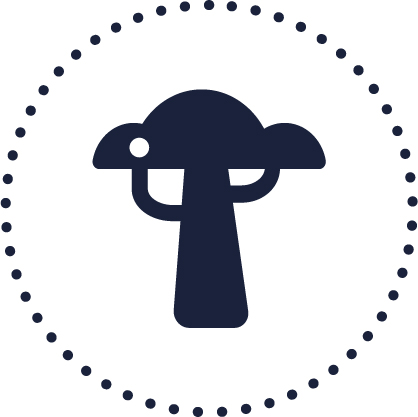ECO AKWA EBOKO VILLAGE
The goal of ECO AKWA EBOKO VILLAGE is to build a 100% ecological, economical and sustainable village.

Overview of the project
Eco Akwa Eboko Village is a project at the doors of the equator. First of all, it is the construction of an ecological village that respects nature as much as possible.
In the Republic of Congo, near Makoua, in the Eboko village, we are building a 100% ecological and economical village. We are building huts made of bamboo (green steel). You will certainly ask me why bamboo and not wood? Thanks to its rapid growth, its capacity for vigorous regeneration without fertilizers or pesticides, bamboo is positioned as the “wood of the future”. It is the plant that generates the most biomass in the shortest time. Giant bamboos can be exploited from 2 to 3 years, compared to 20 years minimum for wood.
Globally, the alarm bell has been rung, deforestation continues at an alarming rate of about 13 million hectares per year. Only 20% of the original primary forests remain on earth. This exploitation is very selective since it is concentrated only on thirty or so highly sought-after species: teak, bankirai, okoumé, merbau, ipe, etc… To access one of these trees, 35 others must be cut down.
Scattered in Asia, Africa, Latin America and always in low subtropical mountains, the natural resources of giant bamboo are enormous. China has the largest reserves on 4.2 million hectares, 25% of the world total.
The exploitation of exotic woods consumes a lot of energy for cutting and transportation. The bamboo is cut by hand, dried in the open air, assembled and worked by hand in the villages near the cutting sites. All exotic woods are harvested by international companies with minimal impact on the local population. The bamboo is cut and sold by the local people who often use it as their only resource.
You should also know that according to the latest tests conducted by the FCBA (technical institute of wood in Bordeaux), bamboo, a natural material, shows mechanical performances superior to wood and concrete.
Bamboo has an essential asset :
- its elasticity,
- its lightness also facilitates its transport,
- Its speed of growth makes it easy to use, without affecting the environment,
- Its longevity is also important, estimated at at least 200 years once treated.
Bamboo is also being used more and more frequently as a solution for reinforcing concrete. Its resistance allows it to replace the metal rods traditionally used, for more ecological realizations with the same solidity.
All these elements have reinforced my choice of Bamboo.
To promote our African continent, our country Congo, our cultures in the eyes of the world, our traditional huts true African heritage, the team of Eco Akwa Eboko Village also designed huts inspired by the huts of our natives.
Eco Akwa Eboko Village is a village that will be entirely managed by women (women living in rural areas and women of the collective UFAP.
Eco Akwa Eboko Village is an invitation to travel, a return to Mbongui to learn, write, conserve and transmit. Our village will contribute to the fight against deforestation, against counter-cultures, for the transmission of the natural, cultural African heritage from generation to generation. Through this project, we wish to fight against the isolation of young people and contribute to the reduction of youth unemployment in rural areas. The construction of the village takes place through participatory workcamps in eco-construction, supervised by professionals of the sector.
Objective: to learn from each other in a friendly and shared atmosphere.
Construction of a 100% ecological, economical and sustainable village.
Ongoing research
Ongoing Project
organisation
The Eboko Foundation is a bridge between eras and generations. It carries out actions for the protection and popularization of the natural, tangible and intangible cultural heritage of the Republic of Congo and of Africa in general with a real will of protection and preservation.
The Eboko Foundation is also the construction of the “Eco Akwa Eboko Village” in Eboko near Makoua. To date, 2 huts have already been built. We are currently testing a prototype capable of standing in the Olhă River.
Within the Eboko Foundation, we have a women’s collective “UFAP” (Union of African Women for Peace) which carries out actions against insecurity and for the maintenance of peace in Africa, through education and the strength of the Mbongui. We work on the reintegration of young girls and women victims of violence. We also work with disadvantaged families and street children and to do so, we have signed partnership agreements with several companies and schools in the Republic of Congo including CFAPS, the Association of the Community of Organic Men, the Dynamique Mwana ya Lobi, the Association Omois Environment and many others. The Eboko Foundation contributes to reducing youth unemployment in rural areas (in 2019, we hired several young people for the construction of our village). We also want to expand participation in cultural life, hoping to see an early enthusiasm for heritage.



